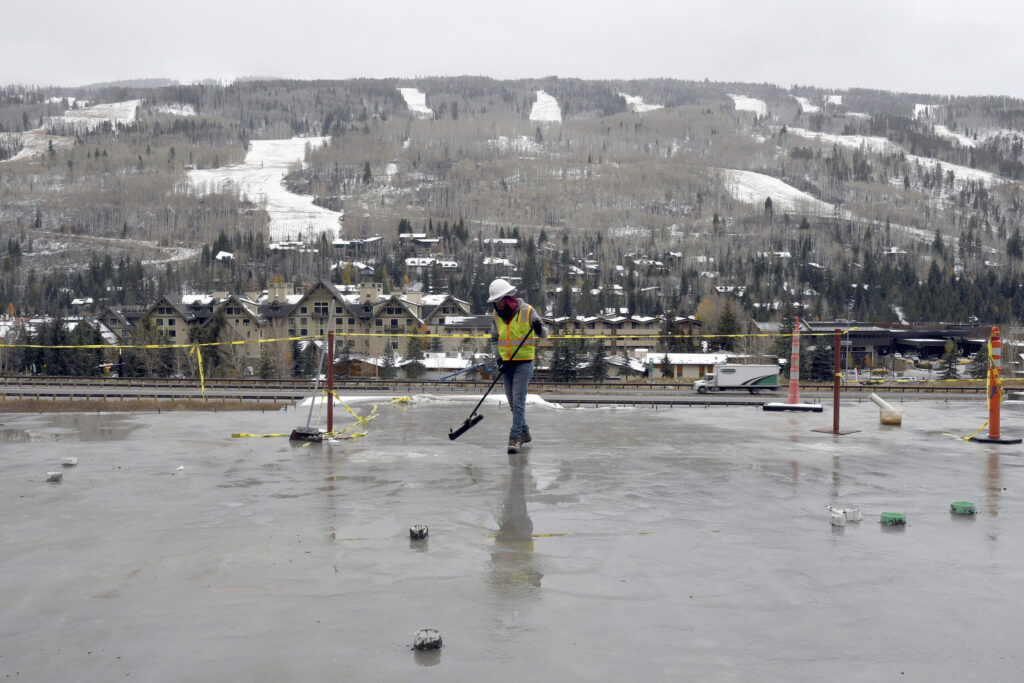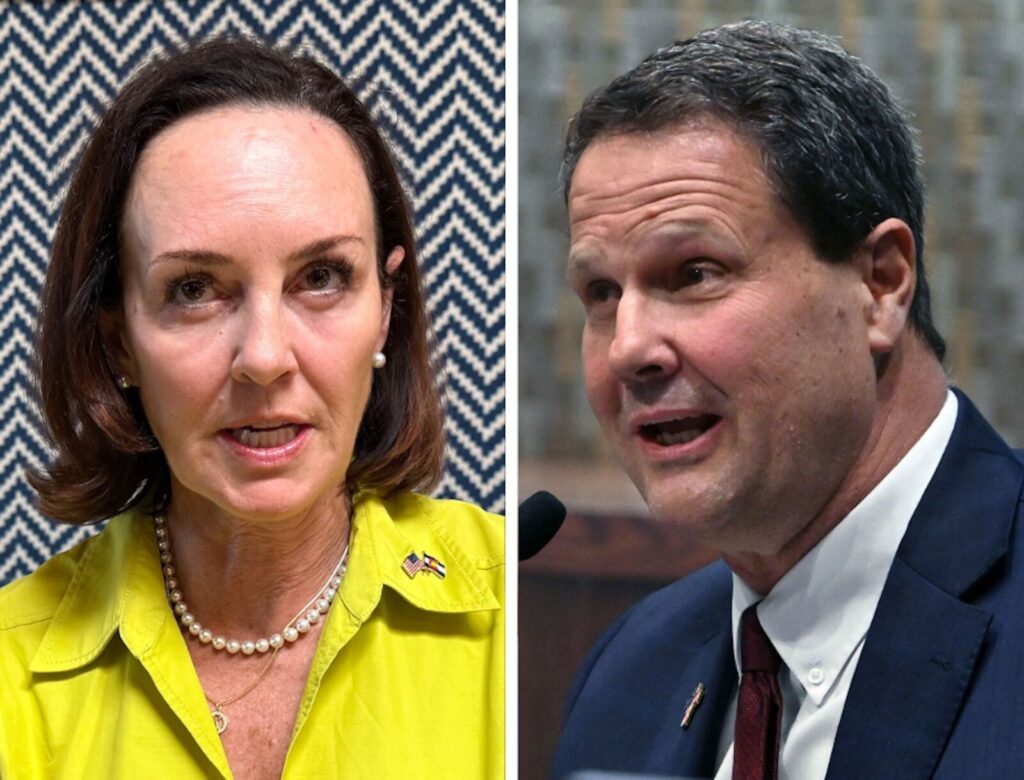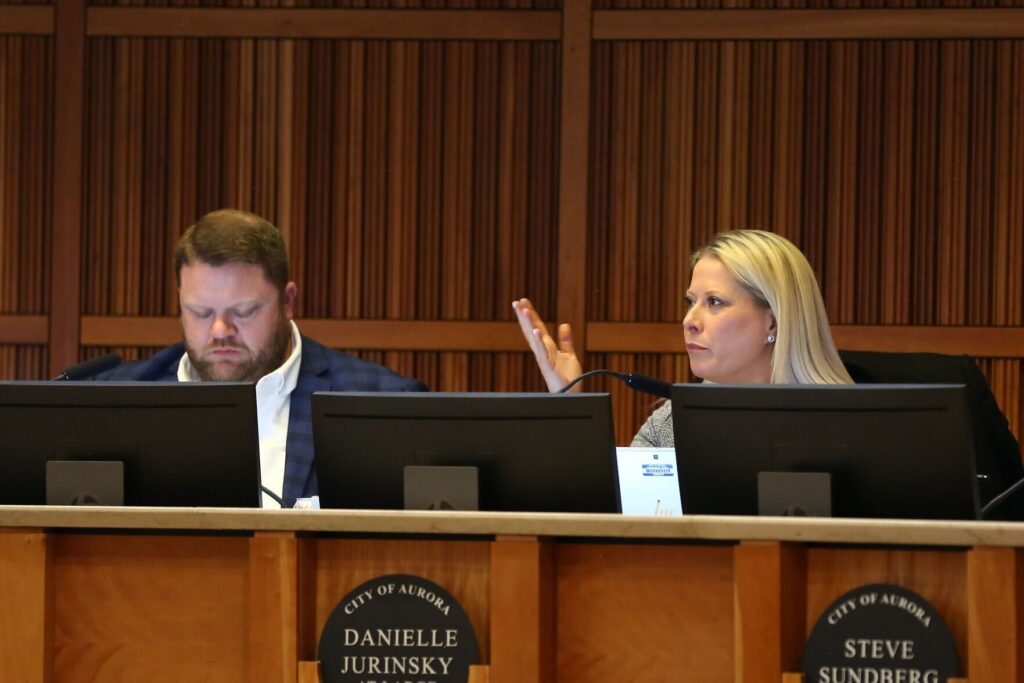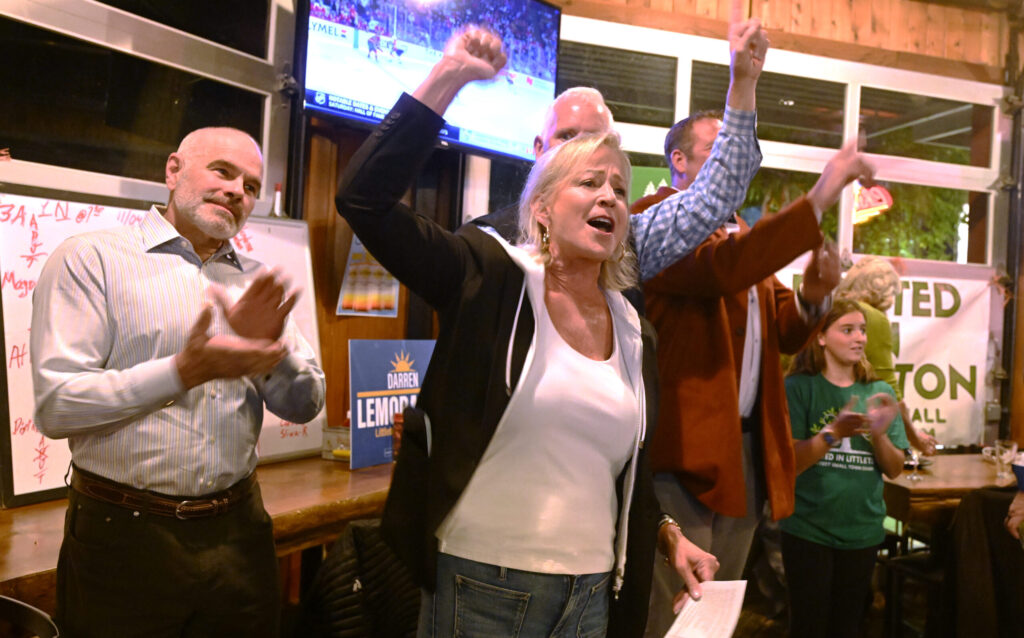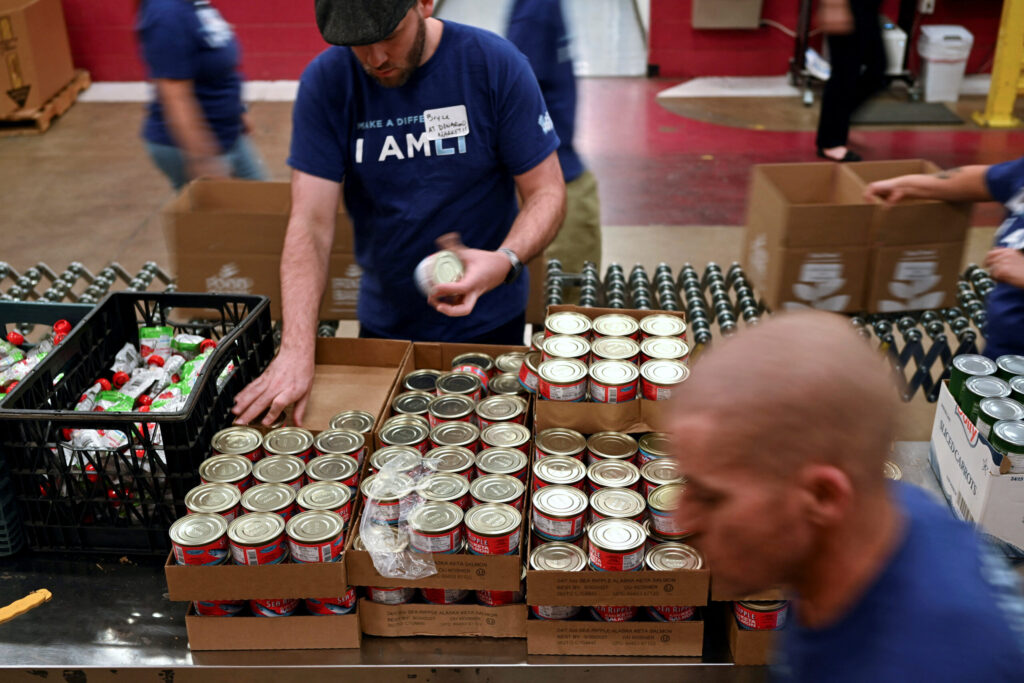12 races to watch as Colorado heads into 2024 presidential election year | COVER STORY
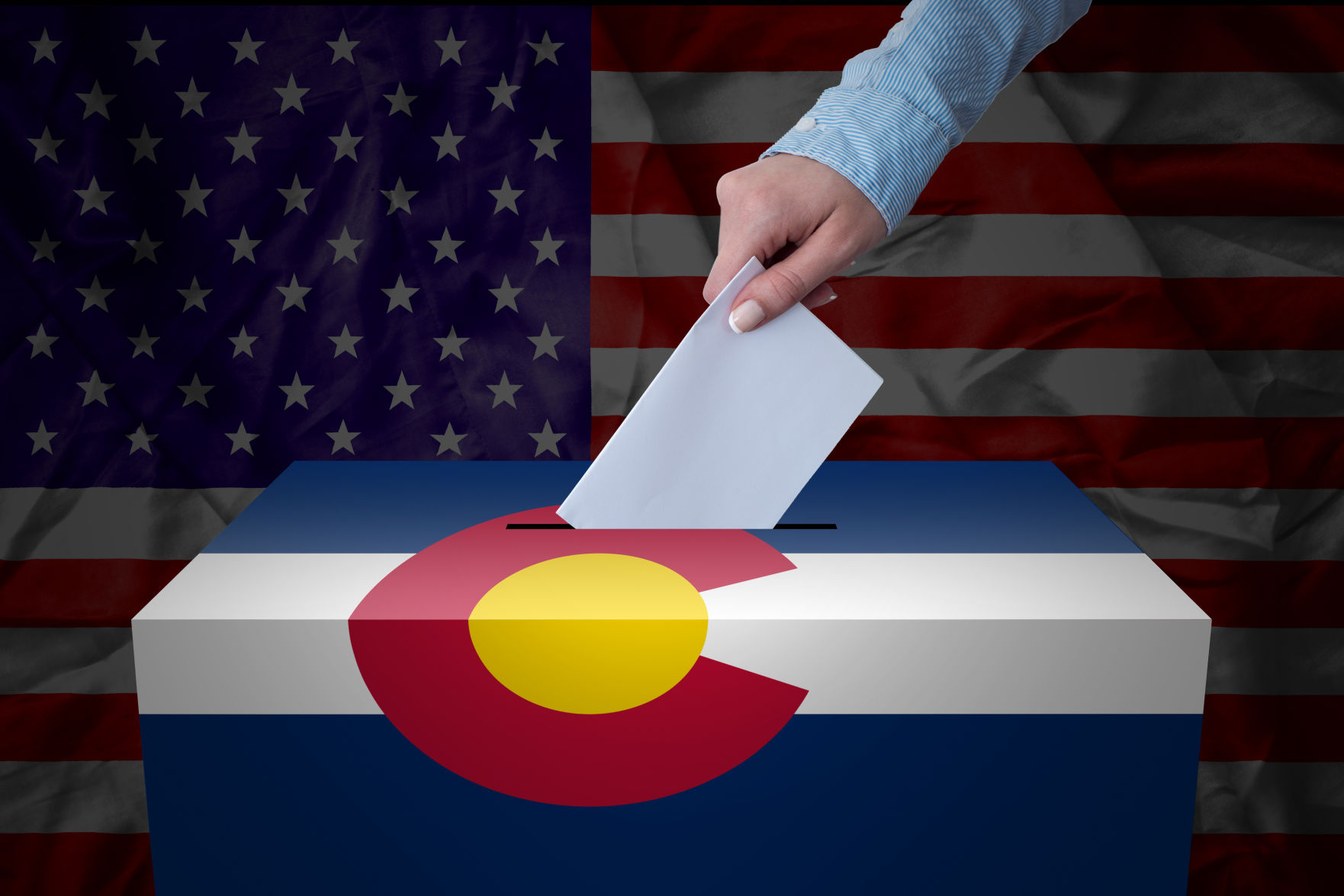
With fewer than 100 days remaining until Colorado’s Super Tuesday presidential primary and statewide precinct caucuses kick off the 2024 election year, the key races that will dominate the ballot and vie for voters’ attention are taking shape.
Coloradans will have the opportunity to cast votes three times through the year – first in the March 5 presidential primary, then in the June 25 state-level primary, and finally in the Nov. 5 general election.
The main event in 2024 will be the race for the White House, with a rematch between President Joe Biden and former President Donald Trump looking increasingly likely, though Colorado’s increasingly Democratic electorate – Biden beat Trump in the state by more than 13 percentage points in 2020 – means the state probably won’t be seriously contested by either campaign, with a handful of swing states gobbling up resources and attention.
While there will be only two contests on the statewide ballot next year – for the presidency and an at-large seat on the University of Colorado Board of Regents – Colorado is already host to a record-shattering U.S. House race that’s drawn national attention and could determine which party controls the chamber after the election as Republican U.S. Rep. Lauren Boebert bids for another term.
Additionally, Democratic U.S. Rep. Yadira Caraveo is vying for a second term in the state’s other battleground district, while Republican U.S. Rep. Ken Buck’s decision to retire after five terms in the GOP-leaning 4th Congressional District threatens to draw a crowded field in the primary.
Down the ballot, Democrats will be defending their historic majorities in the legislature, while Republicans hope to regain some of the ground the party has lost since 2018, when Democrats won uncontested control of state government.
Voters across the state will decide whether to enshrine the right to abortion in the state constitution or effectively outlaw the procedure. They’ll also grapple with soaring property taxes and consider whether to revamp how candidates make it to the fall ballot.
Here’s a look at a dozen races to watch for the next 11 months.
Super Tuesday
Ballots due: March. 5, 2024
Ballots go out: Feb. 12, 2024
Deadline to certify ballot: Jan. 5, 2024

Republican Presidential primary
Who’s running: former President Donald Trump, North Dakota Gov. Doug Burgum, Florida Gov. Ron DeSantis, former South Carolina Gov. Niki Haley, Vivek Ramaswamy, former New Jersey Gov. Chris Christie
What we’ll learn: Whether Colorado is still Trump country among the state’s Republicans
Previous election (2020 GOP presidential primary): Donald Trump 92%, Bill Weld 4%, Joe Walsh 2%, Matthew John Matern 1%
New this cycle, the Colorado GOP is requiring that candidates pony up a hefty fee to appear on the Super Tuesday presidential primary ballot – $40,000, with an option to pay just $20,000 if they agree to participate in a party fundraiser – meant to pare the primary down to more serious candidates and provide a funding boost to the state party.
Colorado will be one of 14 states voting on Super Tuesday, with delegate-rich California and Texas taking the spotlight, but there’s a good chance the candidates still in the race by early March will make stops in the state.
Pending legal action aimed at removing Trump from the ballot under the 14th Amendment’s insurrection clause remains a wild card in the GOP primary. The Colorado Supreme Court is scheduled to hear appeals in the case in early December after a split decision rendered by a Denver District Court judge, who found that Trump engaged in insurrection by attempting to prevent Congress from certifying Biden’s win on Jan. 6, 2021, but also ruled that the amendment’s precise wording doesn’t cover a former president. The case could wind up in the U.S. Supreme Court.
The Democratic primary promises to be less contested though no less crowded, with Biden and a handful of challengers – Minnesota Rep. Dean Philips, Marianne Williamson, Gabriel Cornejos, Frankie Lozada and Stephen Lyons – so far qualified for the ballot, according to state Democrats, who don’t charge for party approval.
June primary election
Ballots due: June 25, 2024
Ballots go out: June 3, 2024
Deadline to certify ballot: April 26, 2024
First day to circulate petitions: Jan. 16, 2024
Petitions due: March 19, 2024

4th Congressional District Republican primary
Who’s running: state Rep. Richard Holtorf, R-Akron; Deborah Flora; Weld County Councilor Trent Leisy; and Justin Schreiber have declared candidacies
In the wings: House Minority Leader Mike Lynch, R-Wellington; Logan County Commissioner Jerry Sonnenberg; former Fort Collins City Council member Gino Campana; former state Sen. Rob Woodward, R-Loveland; former CU Regent Heidi Ganahl; and, Floyd Trujillo have all indicated interest in the primary
What we’ll learn: What kind of Republican voters want in the state’s reddest district
Previous election (2022 general election): U.S. Rep. Ken Buck (R) 61%, Ike McCorkle (D) 37%, Ryan McGonigal (American Constitution Party) 2%.
This rare race for an open, solidly Republican congressional seat – sparked by five-term U.S. Rep. Ken Buck’s announcement last month that he isn’t seeking reelection – has triggered a gold rush among candidates and consultants. Whoever wins the primary has a glide path to Congress and can probably count on keeping the seat at least until the next round of redistricting in 2032.
Colorado Republicans fell short this fall in an attempt to cancel the state’s semi-open primary, which lets unaffiliated voters cast ballots in either Democratic or Republican primaries, though a GOP-led lawsuit challenging the voter-approved ballot measure that established the system is still making its way through the courts.
Expect a crowded, expensive primary that could boil down to a battle for voter share, since it only takes a plurality to win the prize. Although only a couple of experienced candidates have entered the race so far, a handful of heavyweights could get in this month or shortly after the first of the year, when the fundraising quarter resets.
Hard-fought primaries are also brewing in Colorado’s two toss-up U.S. House districts.
In the Western Slope-based 3rd Congressional District, Boebert, the Republican incumbent, is facing challenges from Grand Junction attorney Jeff Hurd and Carbondale businessman and former talk show host Russ Andrew, while the Democrat who came within fewer than 600 votes of unseating her in last year’s election, former Aspen City Council member Adam Frisch, is in a primary against Grand Junction Mayor Anna Stout.
North of the Denver metro area, Caraveo is expected to defend her swing seat against the winner of a GOP primary between Weld County Commissioner Scott James, state Rep. Gabe Evans, R-Fort Lupton, and political newcomer Joseph Andujo, a Fort Collins-based health insurance agent.
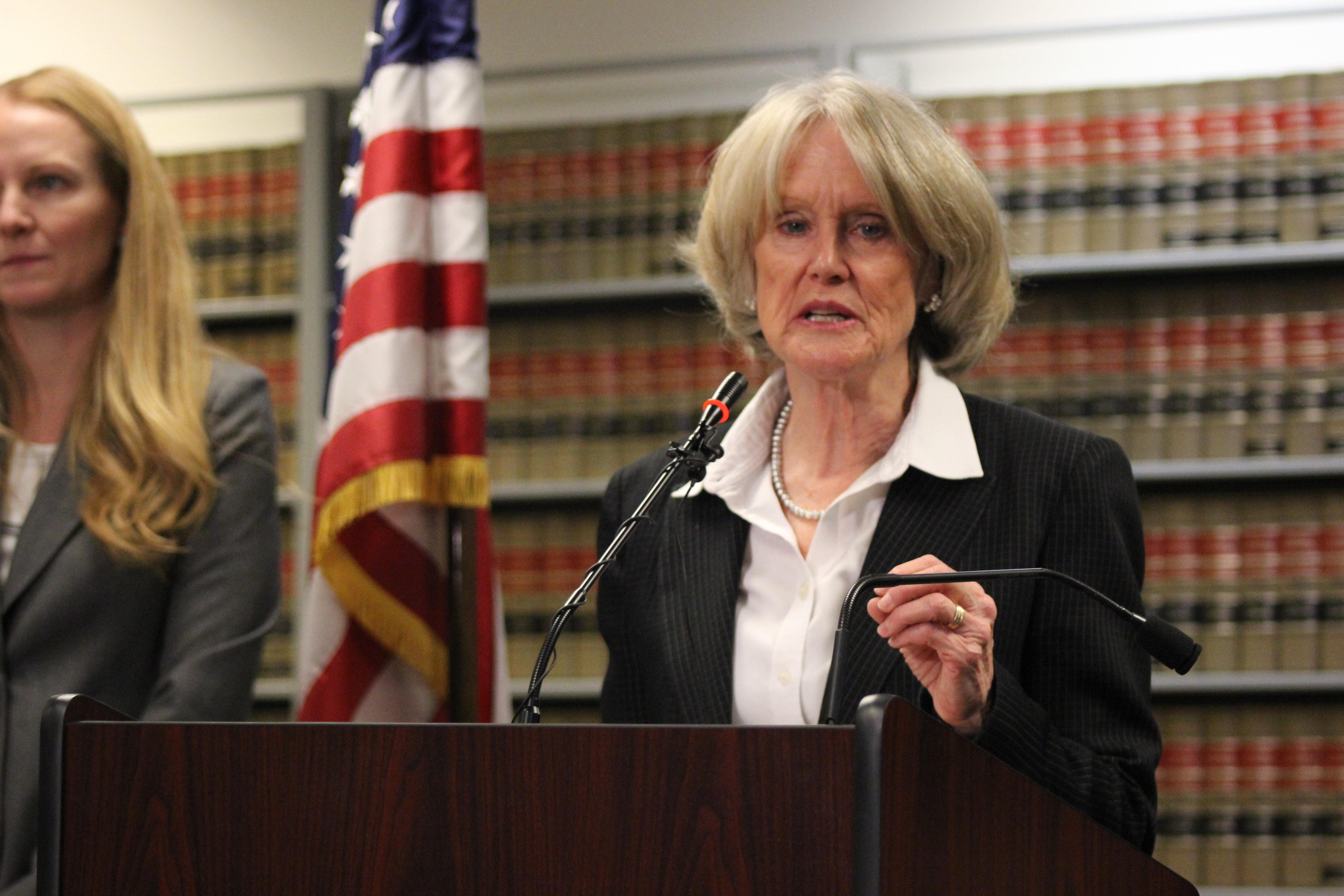
Denver district attorney Democratic primary
Who’s running: former 18th Judicial District Deputy District Attorney Leora Joseph, Lisi Owen, Chief Deputy Denver District Attorney Matthew James, and former U.S. Attorney for the District of Colorado John Walsh
What we’ll learn: How do Denver voters want to approach pressing criminal justice questions
Previous election (2020 general election): Beth McCann (D) 83%, William F. Robinson III (Libertarian) 17%
Two-term incumbent District Attorney Beth McCann, a former state lawmaker, announced earlier this year that she isn’t running for reelection, leaving open the office of the state’s most prominent local prosecutor. Before her announcement, McCann had already drawn primary challengers in Joseph and Owen, a former civil rights attorney, as well as from a deputy who has since withdrawn. But the prospect of an open seat drew Walsh, who ran in 2020 for the U.S. Senate, into the race, giving voters a full range of choices between competing visions.

State House District 4 Democratic primary
Who’s running: State Rep. Tim Hernández, D-Denver, and Cecilia Espenoza
What we’ll learn: How far left Denver voters are inclined
Previous election (2022 general election): Serena Gonzales-Gutierrez (D) 83%, Jack Daus (R) 17%
Hernández, a community activist and teacher, was appointed to fill this reliably Democratic North and Westside Denver seat in August after Gonzales-Gutierrez, a two-term incumbent, stepped down to assume the seat she won on Denver City Council.
The avowedly progressive Hernández quickly drawn a primary challenge from Espenoza, a former appellate immigration judge and counsel for the U.S. Department of Justice, the runner-up in this summer’s party vacancy election.
Rifts within Colorado’s Democratic Party have intensified since Hamas attacked Israel on Oct. 7, with Israel’s invasion of Gaza leading to bitter disputes at the Capitol, and Hernández has been a lightning rod since appearing at a rally to support Palestinians. As much as any, this primary could embody the party’s tensions between traditional and more aggressively progressive Democrats.
November general election
Ballots due: Nov. 5, 2024
Ballots go out: Oct. 14, 2024
Deadline to certify ballot: Sept. 6, 2024

3rd Congressional District
Who’s running: Republicans U.S. Rep. Lauren Boebert, Jeff Hurd and Russ Andrews; Democrats Adam Frisch and Grand Junction Mayor Anna Stout; and Libertarian James Wiley
What we’ll learn: If voters still embrace Boebert’s brand of confrontational politics
Previous election (2022 general election): U.S. Rep. Lauren Boebert (R) 50.02%, Adam Frisch (D) 49.98%
Already grabbing national headlines, Boebert’s bid for a third term in the Republican-leaning 3rd CD stands to be the state’s marquee race. Frisch, who restarted his campaign just months after conceding the closest congressional contest in the county last year, has bowled over fundraising records in the months since.
Biden put a focus on Boebert this week during a visit to a wind turbine manufacturing plant in Pueblo, the district’s largest city, calling her out for opposing the administration’s signature legislative priorities. She returned the favor, blasting Biden and the Democratic agenda.
There could be no congressional race in the country that better lays bare the battle between the two parties.
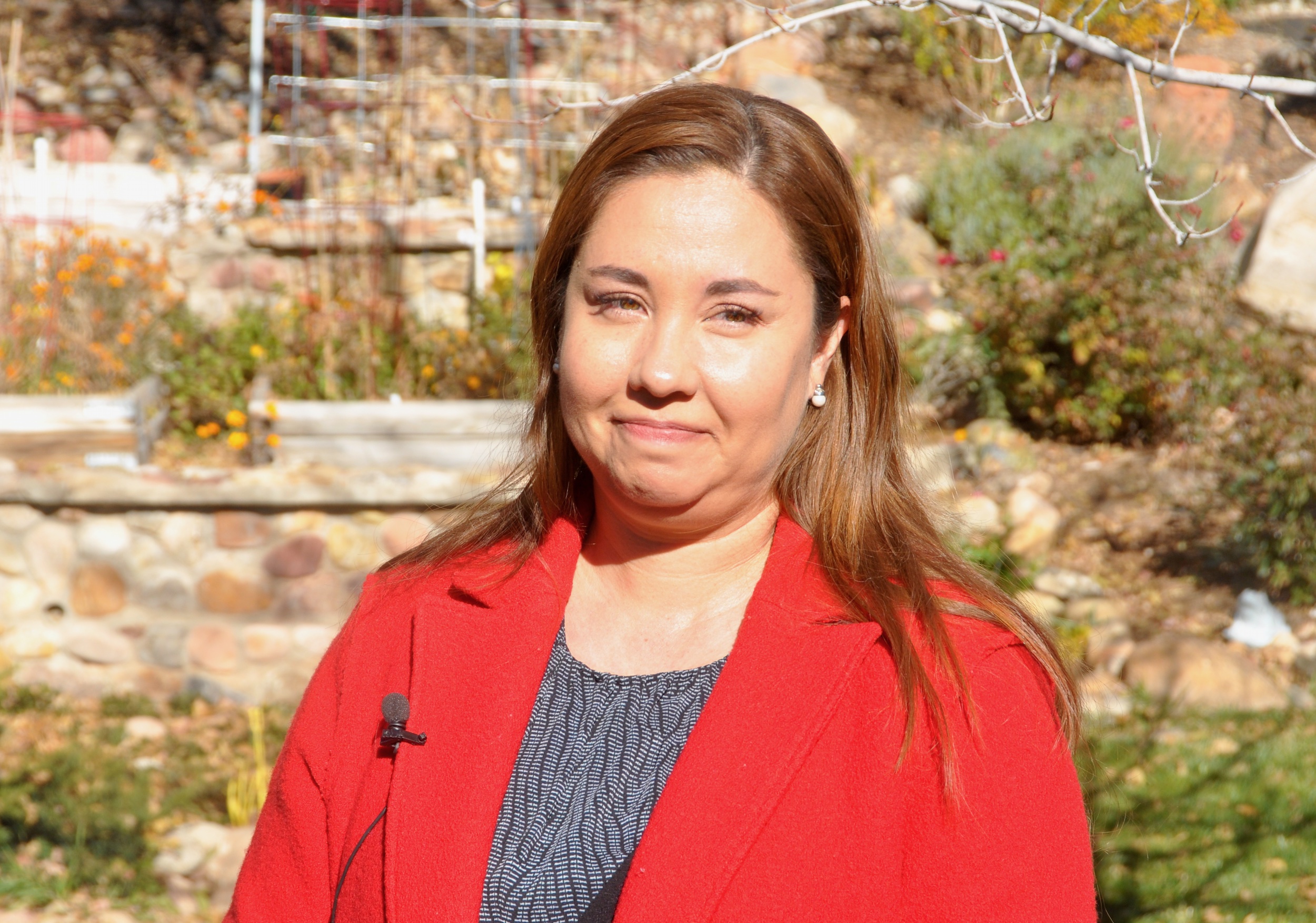
8th Congressional District
Who’s running: Incumbent Democrat U.S. Rep. Yadira Caraveo, and Republicans Weld County Commissioner Scott James, state Rep. Gabe Evans, R-Fort Lupton, and Joseph Andujo
What we’ll learn: Whether Caraveo has won over the swing seat’s electorate
Previous election (2022 general election): Yadira Caraveo (D) 48.38%, Barb Kirkmeyer (R) 47.69%, Richard Ward (Libertarian) 3.93%
The state’s newest congressional district – created after last year’s election, when Colorado gained a seat – is nearly evenly divided and is rated a toss-up by the Cook Political Report and other national election forecasters. Covering portions of Adams, Weld and Larimer counties, the district’s electorate is roughly one-third Hispanic, the largest share of any district in the state, and ranges suburbs north of Denver to agricultural and oil and gas fields stretching to Greeley.
Targeted by both national parties, the race won’t attract as many headlines as Boebert’s reelection bid, but will test both parties’ prowess persuading voters and turning out the vote.

University of Colorado regent at-large
Who’s running: Democrats Elliott Hood and Charles Johnson, and Republican Dennis Smith
What we’ll learn: Whether Republican have a shot statewide in a typically low-profile race
Previous election (2018 general election): Lesley Smith (D) 52%, Ken Montera (R) 43%, James Treibert (Libertarian) 4%, Christopher Otwell (Unity Party) 1%
Democrats will likely have a primary for the lone statewide seat on the ballot next year, which has been held since 2018 by Democrat Lesley Smith, who is running for a Boulder-based state House seat, instead of seeking another six-year term. Education attorney and CU graduate Hood is facing Ball Corporation diversity, equity and inclusion executive Johnson, a quarterback on CU’s 1990 championship football team, in an all-Buffs matchup that could shape the regents’ direction for years to come. Smith is so far the only Republican running.
Until the CU Board of Regents shed its other at-large seat last year following congressional redistricting – at the same time adding an additional congressional district-based seat on the nine-member board, after Colorado gained a new U.S. House district – it was occupied by the only Republican still holding statewide office, last year’s unsuccessful gubernatorial nominee, Heidi Ganahl.
The low-profile at-large regent’s race is often used to gauge baseline partisan voting behavior, so the results could point to the state’s mood in ways the presidential race and more locally focused elections won’t.

State Senate District 12
Who’s running: State Rep. Marc Snyder, D-Manitou Springs, and Republican El Paso County Commissioner Stan VanderWerf
What we’ll learn: Whether El Paso County’s recent shift away from decades-long GOP dominance continues
Previous election (2020 general election): State Sen. Bob Gardner (R) 58.3%, Electra Johnson (D) 37.8%, Zechariah Harris (Libertarian) 3.9%
Term-limited Gardner last won election in a district that heavily favored Republicans, before the state’s reapportionment commission shifted its boundaries from east-central Colorado Springs to the city’s west side, giving Democrats a fighting chance and Snyder, a former mayor of Manitou Springs, the opportunity to flip the seat.
Democrats currently hold a 23-12 advantage in the Senate, just one seat away from a supermajority, so the fight for a potentially vulnerable Republican-held seat will be intense.
State House District 19
Who’s running: State Rep. Jennifer Lee Parenti, D-Longmont, the incumbent, and former state Rep. Dan Woog, R-Erie
What we’ll learn: Whether Republicans can begin to take back ground in the legislature
Previous election (2022 general election): Jennifer Parenti (D) 50.34%, Dan Woog (R) 46.97%, Joe Johnson (Libertarian) 2.68%
This closely divided district was one of several upsets suffered last year by Republican lawmakers, and a rematch gives both parties a chance to determine if 2022 was the Democrats’ high point.
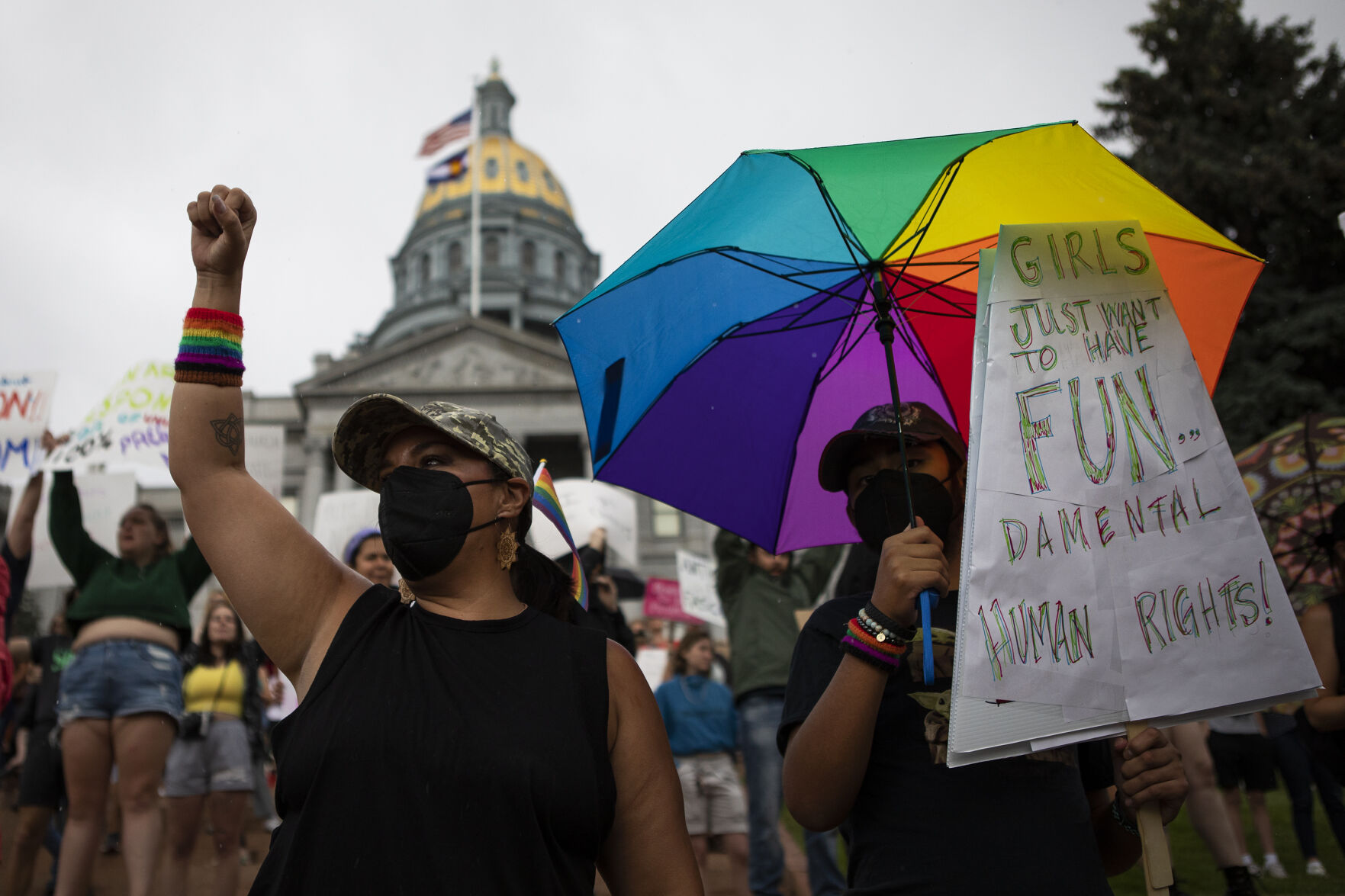
Abortion ballot measures
What we’ll learn: Whether state voters are as supportive of abortion rights as they have been in years past
Previous election (2020 general election): Proposition 115, which would have prohibited abortion after 22 weeks gestation: Yes 41%, No 59%
Voters will likely face two competing measures on next year’s ballot – a constitutional amendment to enshrine the right to abortion while lifting a longstanding prohibition on state funding for the procedure, and a statutory initiative that would effectively make abortion illegal. Backers of both measures have until April to gather the required signatures.
Since last year’s repeal of Roe v. Wade, measures guaranteeing abortion rights have passed even in conservative states and could do the same in Colorado, whose voters have routinely rejected abortion restrictions.
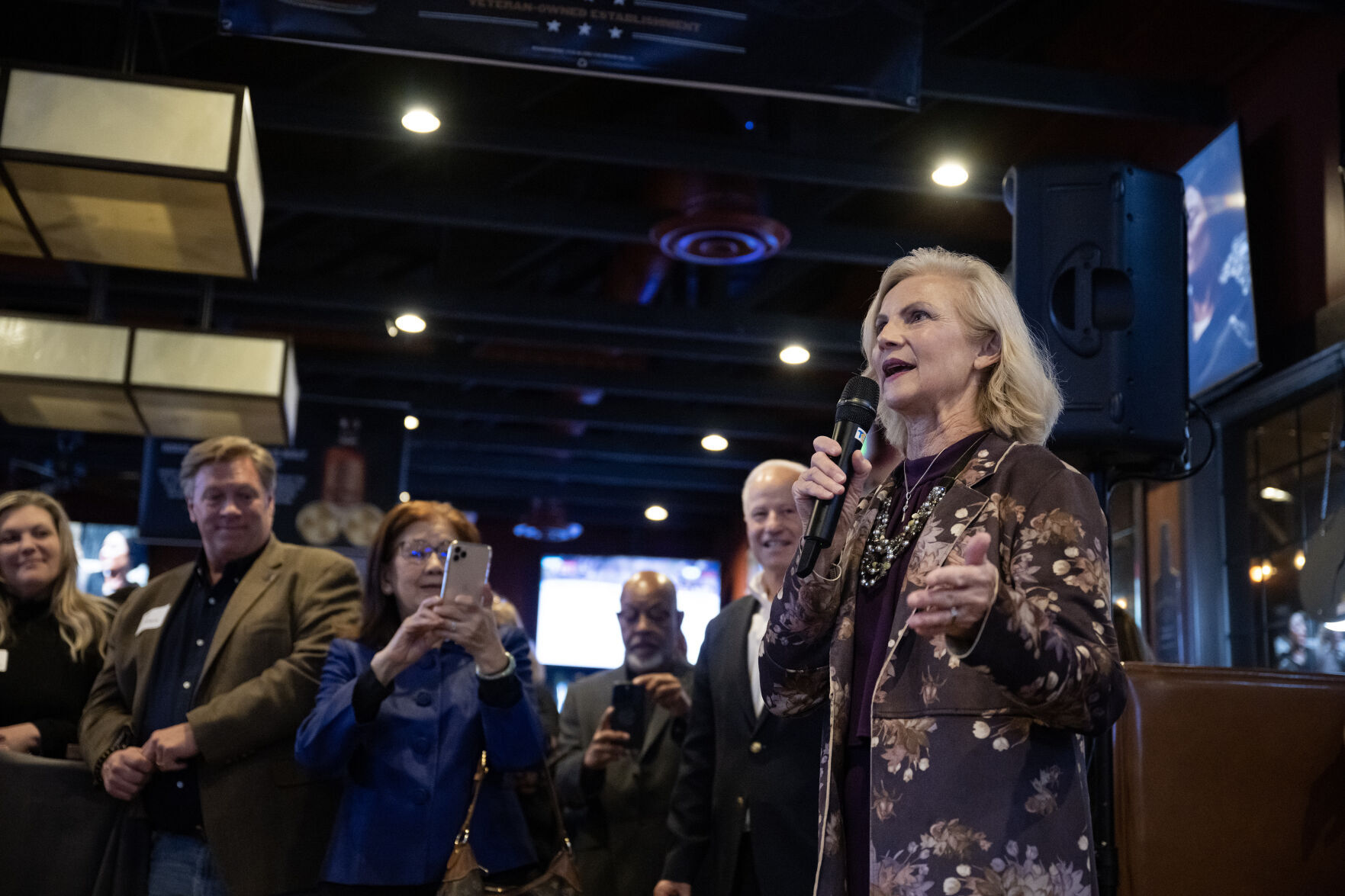
Property tax ballot measures
What we’ll learn: How voters want to handle soaring property taxes
Previous election (2023 general election): Proposition HH, which would have used TABOR refunds to curb property tax inreases, among other provisions: Yes 41%, No 59%
The only ballot measure that has so far won a spot on the 2024 ballot is a constitutional amendment to cap annual property tax increases at 4%. Brought by opponents of the Democrats’ failed Proposition HH, it could be joined by other attempts to rein in the double-digit jumps in property tax rates that have resulted from climbing property values and the 2020 repeal of the Gallagher Amendment, which restricted residential property tax bills.
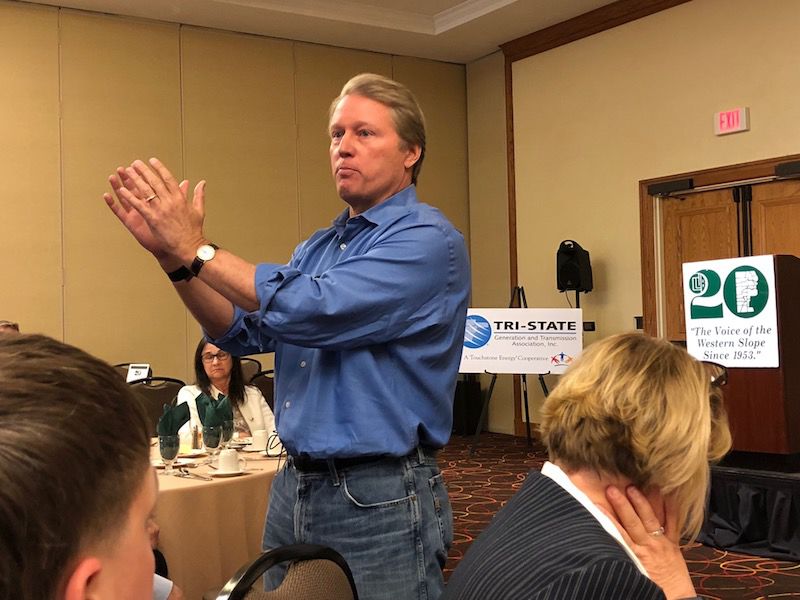
Election procedures ballot measure
What we’ll learn: Whether Colorado voters are ready to discard partisan primaries and adopt ranked-choice voting
Helmed by wealthy former DaVita CEO Kent Thiry, the force behind several successful statewide ballot measures in recent years, a sweeping measure to change the state’s primary system – replacing it with a so-called jungle primary, where the top four finishers advance to the November election – has so far drawn fierce opposition from both major political parties.
The proposal, which has yet to be approved for signature gathering by the state’s Title Board, could evolve by the time it makes the ballot, but at this point also includes a move to ranked-choice voting, a method several states and a handful of Colorado cities use.
Thiry, who has long had his eye on a run for governor, was behind ballot measures that put in place the state’s semi-open primary system and reestablished the presidential primary. He was also the driving force behind measures that created independent legislative and congressional redistricting commissions.





